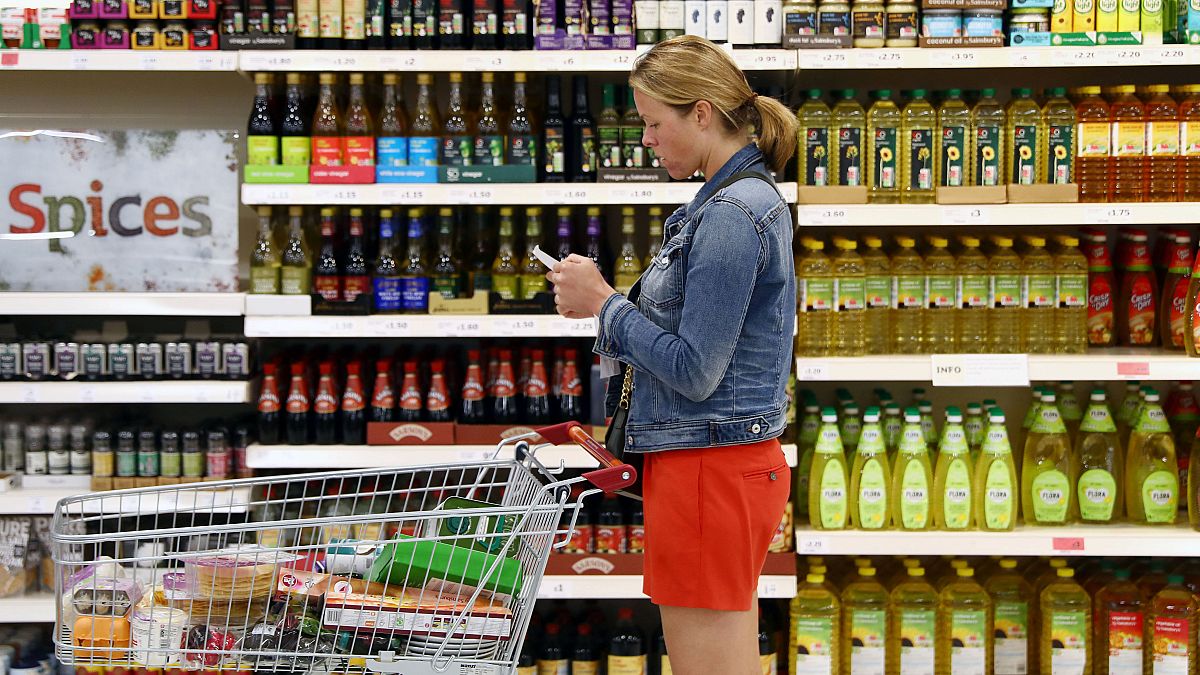Companies producing food, medicine, cosmetics, and plastic across Europe are not completing important safety checks when using millions of tonnes of chemicals in production, an analysis has found.
Companies producing food, medicine, cosmetics and plastic across Europe are breaking EU legislation not completing important safety checks when using millions of tonnes of chemicals in production, an analysis has found.
This has been going on for years but was only recently discovered thanks to German government files, which environmental group BUND obtained.
The companies failed to report whether these chemicals are harmful to unborn babies or cancerous, or pose a threat to the environment.
What are the chemicals and where are they found?
As many as 12 to 121 million tonnes of the 41 different chemicals concerned are used in Europe every year. They can be found in customer and industrial products, including medicines, food contacts (such as packaging) and toys.
The Chemicals include:
- Dibutyl phthalate, used in flooring, furniture, toys, construction materials, curtains, footwear, leather, paper, and cardboard products and electronic equipment, which is suspected to potentially harm unborn children, reduce fertility and is highly toxic to aquatic life;
- methyl acetate, used in coating products, adhesives, sealants, cosmetics and personal care products, as well as washing and cleaning products, which can cause eye irritation and dizziness;
- trichloroethylene, used mainly in industrial production, which could cause cancer, dizziness, and harms aquatic life with longlasting effects.
Which companies are not using proper checks?
Big players like Bayer, ExxonMobil, BP, Michelin, L'Oréal, Merck, have been implicated in the scandal, among others.
A series of documents obtained by the study detailed 654 companies that are breaking EU law. Some, like Bayer with the glyphosate scandal or Dow Chemical with Bhopal, have also been involved in past scandals.
Where are the chemicals used incorrectly?
The study found that Germany had the highest number of company infringements, with 169 cases recorded. Next was the UK with 80 infringements, the Netherlands with 68, France with 56, Italy with 49, Spain with 42 and Belgium with 38.
The scandal includes companies working in all member states except Malta and Latvia.
How widespread is the problem?
BUND used Freedom of Information rules to attain documents from a 2014 German government investigation which concluded that 940 substances did not meet the REACH European Union data safety standards.
The NGO warned that these findings might only be the tip of the iceberg: ''The true scale of the problem may be much larger,'' it said in a press release.
Last November, the European Chemicals Agency (ECHA) said that two-thirds of the 700 chemicals it has studied break some of the EU's key chemical regulations. MEPs have dubbed the phenomenon the "dieselgate of the chemical industry".
“Chemical companies have been disregarding the law for years and getting away with it, selling substances that might cause hormonal cancers, brain disorders and other severe health problems,'' BUND's chemicals policy officer Manuel Fernandez said.
''As consumers, we are kept in the dark, not knowing if everyday products are safe or not. What we do know is that EU and national authorities need to raise their game in a big way.”
How has this problem arisen?
The low levels of compliance observed in the last 10 years could be explained by insufficient checks, Jack Hunter, Senior communications officer of the European Environmental Bureau, told Euronews.
At the EU level, only 5% of the dossiers are currently subjected to checks but the proportion is set to rise to 20%, Hunter said.
Regulatory bodies at EU level should implement more firmly the principle "no data, no market" -- the study suggested that a large volume of chemical products were put on the market without adequate safety data.
The weight of the chemicals lobbies in Brussels is another factor to keep in mind. According to LobbyFacts, a non-profit database, the lobbying budget of the European Chemical Industry Council amounted to €12m in 2018.
How have chemical companies responded to the study?
''The European chemical industry is making REACH work, already today," Marco Mensink, Director General at European Chemical Industry Council, said in response to BUND's report.
"We take ECHA’s findings that the quality of data in a number of REACH dossiers needs improvement seriously, and we will be fully transparent about our actions to remedy the situation where it is appropriate.
''The issues raised by the BUND report are not new as all involved are already working on this issue.''
"This type of messaging is not helpful at all, nor is the individual naming and shaming of companies," Mensik added.
